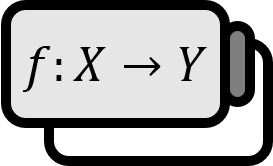Rodrigues Formula for Legendre Polynomial
Formula
The explicit formula for the Legendre polynomials is as follows.
$$ P_{l}(x)=\dfrac{1}{2^{l} l!} \dfrac{d^{l}}{dx^{l}}(x^{2}-1)^{l} \tag{1} $$
Description
This formula is used to obtain the $l$th Legendre polynomial, known as the Rodrigues’ formula. Originally, it referred to the explicit form of the Legendre polynomials, but later it became a universal name for formulas representing the explicit form of special functions expressed as polynomials.
Derivation
The Legendre polynomial $P_{l}$ refers to the solution of the following Legendre differential equation.
$$ (1 - x^{2}) \dfrac{d^{2} y}{d x^{2}} - 2x \dfrac{d y}{d x} + l(l+1)y = 0 $$
Thus, the proof is complete if it is shown that $(1)$ is a solution to the above differential equation.
First, when we set $v=(x^2-1)^l$, we will show that $\dfrac{d^lv}{dx^l}$ is a solution to the Legendre equation. Later, normalization is performed to satisfy $P_{l}(1) = 1$, obtaining $(1)$.
$$ \dfrac{dv}{dx}=l(2x)(x^2-1)^{l-1} $$
Multiplying both sides by $(x^2-1)$ yields the following equation.
$$ (x^2-1)\dfrac{dv}{dx}=2lx(x^2-1)^l=2lxv $$
Differentiating both sides $l+1$ times yields the following, according to the Leibniz rule.
$$ \sum \limits_{k=0}^{l+1} {}_{l+1}\mathrm{C}_{k} \dfrac{ d^{l+1-k}}{dx^{l+1-k} } \left( \dfrac{dv}{dx} \right) \dfrac{d^k}{dx^k} (x^2-1) = 2l\sum \limits_{k=0}^{l+1} {}_{l+1}\mathrm{C} _{k} \dfrac{d^{l+1-k} v}{dx^{l+1-k}} \dfrac{d^k x}{dx^k} $$
At this time, the left side remains only when $k \ge 3$ is $\dfrac{d^k}{dx^k}(x^2-1)=0$, so only the term $k=0,2,3$ remains. The right side remains only when $k \ge 2$ is $\dfrac{d^kx}{dx^k}=0$, so only the term $k=1,2$ remains. Thus, we obtain the following.
$$ (x^2-1)\dfrac{d^{l+2} v}{dx^{l+2}} + (l+1)(2x)\dfrac{d^{l+1}v}{dx^{l+1}}+\dfrac{l(l+1)}{2!}2\dfrac{d^l v}{dx^l}=2lx\dfrac{d^{l+1} v}{dx^{l+1}} + 2l(l+1)\dfrac{d^lv}{dx^l} $$
By grouping like terms together and arranging them properly, the following is obtained.
$$ (1-x^2)\left( \dfrac{d^l v}{dx^l} \right)^{\prime \prime} -2x\left( \dfrac{d^lv}{dx^l} \right)^{\prime} + l(l+1)\dfrac{d^lv}{dx^l}=0 $$
This has the same form as the Legendre equation. That is, $\dfrac{d^l v}{dx^l}$ becomes a solution to the Legendre equation.
$$ P_{l}(x)= \dfrac{d^l}{dx^l}(x^2-1)^l $$
Let’s find the coefficient that satisfies $P_{l}(1) = 1$. Factorizing $(x^2-1)^l$ into $(x-1)^l(x+1)^l$ and differentiating $l$ times using the Leibniz rule yields the following.
$$ \begin{align*} &\quad \ P_{l}(x) \\ &= \dfrac{d^l}{dx^l} \left[ (x-1)^l (x+1)^l \right] \\ &= \sum\limits_{k=0}^l {}_{l}\mathrm{C}_{k} \dfrac{d^{l-k}}{dx^{l-k}}(x-1)^l \dfrac{d^k}{dx^k}(x+1)^l \\ &= {}_{l}\mathrm{C}_{0} l! (x+1)^l + {}_{l}\mathrm{C}_{1} l!(x-1) l(x+1)^{l-1}+{}_{l}\mathrm{C}_2\dfrac{l!}{2}(x-1)^2l(l-1)(x+1)^{l-2}+\cdots \end{align*} $$
From the second term onwards, because it includes the factor $(x-1)$, when $x=1$, $0$ is true. Therefore, $P_{l}(1)=l! 2^l$, and to make this value $1$, it must be divided by $\dfrac{1}{2^l l!}$. Therefore, we finally obtain the following Rodrigues’ formula.
$$ P_{l}(x)=\dfrac{1}{2^l l!}\dfrac{d^l}{dx^l}(x^2-1)^l $$
■
